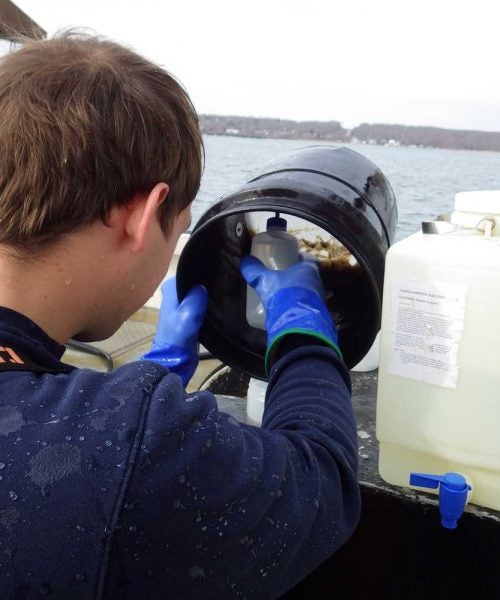Effects of climate change on winter flounder and its impacts on fisheries in Narragansett Bay (2015-2018)
Principal Investigator: Jeremy Collie (URI GSO)
Collaborators: Joe Langan (URI GSO), Jason McNamee (RI DEM), Mark Gibson (RI DEM)
Funding Source: Rhode Island Sea Grant
Winter flounder (Pseudopleuronectes americanus) has historically supported large commercial and recreational fisheries as a prolific finfish in Rhode Island waters. However, its abundance has declined to an all-time low during the past three decades. As a cold-water, estuarine-dependent species, winter flounder has been shown to experience poor recruitment due to increased predation related to warming winters. Through this mechanism, climate change, in addition to past harvest pressure, is thought to be responsible for this population decline. While there are other stressors that could impact winter flounder survivability at different points in its life cycle, there has yet to be a comprehensive assessment of such factors or how they may interact with exploitation or environmental change.
This work seeks to collate multiple long-term data sets to identify the life-cycle stages at which winter flounder experience increased mortality and identify stressors, including harvest, climate change, predation, and pollution, that best explain this decreased survival through statistical modeling. Combining this knowledge with additional exploration of changing patterns of habitat use, a temperature-dependent life cycle model of winter flounder will be constructed to estimate the level of sustainable harvest both under current climate conditions and projected climate scenarios. Within this framework, the understanding of life stage-specific mortality and its drivers will be used to evaluate if adaptive fishery management methods can be used to enhance survival and ultimately determine the feasibility of recovering one of Narragansett Bay’s historically most important species.
 Home
Home Browse
Browse Close
Close Events
Events Maps
Maps Email
Email Brightspace
Brightspace eCampus
eCampus



